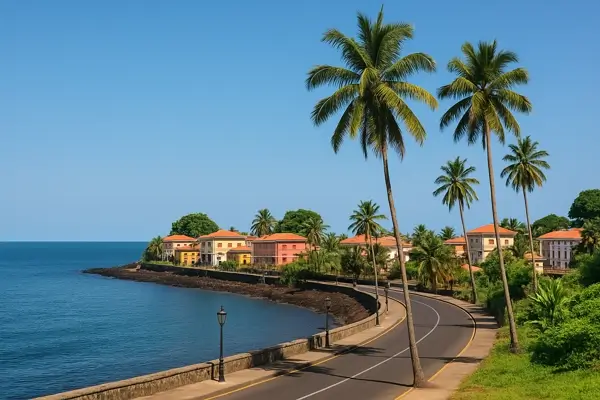
Africa's Only Spanish-Speaking Country
Equatorial Guinea is the only African country where Spanish is the official language. In addition to Spanish, French and Portuguese are also official languages, making it a multilingual country.
Made Up of Islands and Mainland
The country consists of two parts: the mainland, called Río Muni, and several islands, with the largest being Bioko Island, where the capital city, Malabo, is located. The islands are situated in the Gulf of Guinea off the west coast of Central Africa.
Oil-Rich Nation
Equatorial Guinea is one of the largest oil producers in sub-Saharan Africa. Oil exports make up a significant portion of the country's economy, and the country has one of the highest per capita incomes in Africa, though wealth is unevenly distributed.
Home to Unique Wildlife
The country is home to diverse ecosystems, with tropical rainforests on the mainland and volcanic islands. It is known for its unique wildlife, including species like the bush elephant, chimpanzees, and gorillas, particularly on the island of Bioko.
Rich History and Colonial Legacy
Equatorial Guinea was a colony of Spain until it gained independence in 1968, making it one of the last African countries to decolonize. The country’s colonial history is reflected in its Spanish architecture and cultural influences.
Capital and Largest City: Malabo
Malabo is the capital and largest city of Equatorial Guinea. It is located on Bioko Island and is known for its colonial-era architecture, including the Malabo Cathedral and Presidential Palace.
Unique National Flag
Equatorial Guinea's flag features an emblem that includes a shield with a silvery silk tree (the national symbol) and five stars, representing the five islands of the country. The flag reflects both the country's history and its identity.
Political System
The country is an absolute monarchy under President Teodoro Obiang Nguema Mbasogo, who has been in power since a military coup in 1979. His rule is marked by significant political control, and the country has faced criticism for its human rights and freedom of speech records.
National Cuisine
Equatorial Guinea’s cuisine reflects the country’s African, Spanish, and Portuguese influences. Traditional dishes include pepper soup, fish stews, and pounded yam with sauces made from ground nuts or vegetables.
Tropical Climate and Biodiversity
The country experiences a tropical climate, with both wet and dry seasons. Its tropical rainforests are home to a wealth of biodiversity, and conservation efforts are underway to protect the unique species and ecosystems in the country.
